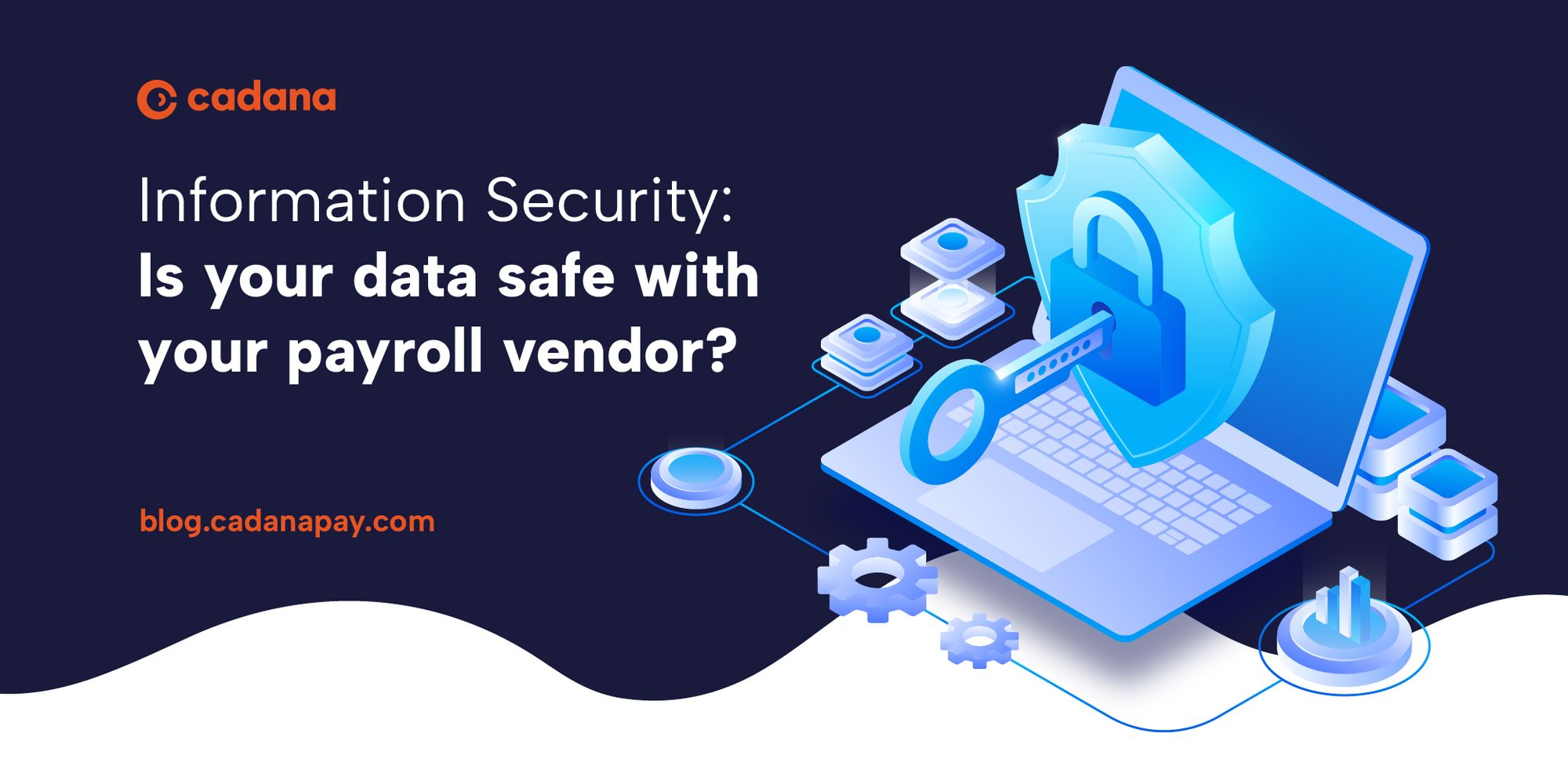Information Security: Is your data safe with your payroll vendor?

Payroll vendors provide a convenient solution for managing payroll, but many business owners and employees may wonder if their data is secure with their vendors.
Adherence to information security regulations and standards is a critical component of a comprehensive information security program. However, data breaches can occur for various reasons, including human error, technical vulnerabilities, and malicious attacks.
Data security has become more important than ever in today's digital age. As a business owner, you have a responsibility to safeguard the sensitive information of your employees, such as their personal and financial details, medical information, and other private data.
But what happens when you outsource payroll management to a third party? Can you trust them to keep your data safe, knowing that a breach could result in severe consequences such as financial loss, identity theft, legal liabilities, and damage to the reputation of both the business and its employees?
The answer to this question depends on the vendor you select. When it comes to data security, not all payroll vendors are created equal. As you search for your next payroll vendor, make sure to ask tough questions about how they handle information security. Here are some important factors to consider:
- Are their security measures up to date?
You don't want to entrust your data to a payroll vendor who is still using antiquated security measures. Ascertain that they are up to date on the most recent security measures, such as two-factor authentication, encryption, and intrusion detection systems. - How do they separate your information?
You don't want your employees’ sensitive information to be mixed in with the data of other companies. Make sure that your payroll vendor has implemented data segregation measures, such as using separate databases or file systems, network segregation, and access controls that restrict access to only those who require it. - Is there a backup plan?
What happens to your data if a disaster or system failure occurs? Ascertain that your payroll vendor has a plan in place to back up your data on a regular and secure basis, as well as to recover it quickly in the event of a disaster. - How long have they been in business?
Has the vendor had any previous data breaches? If so, how did they handle them, and what precautions have they taken to avoid future incidents? Do they have any third-party certifications or audits attesting to their data security practices? - Do they conduct regular internal audits?
Internal audits follow a similar process to external audits like ISO 27001 and SOC 2 in terms of planning, auditing, reporting, and monitoring. It is crucial to establish internal audits as a regular procedure.
Payroll data is highly sensitive and requires robust information security measures to protect it from cyber threats and other risks. Asking these difficult questions can help ensure that your payroll vendor is capable of safeguarding your employees' sensitive information. Don't let your vendor drop the ball; make sure they're up to the task of protecting your data!
At Cadana, we establish a timetable for internal audits in our information security management systems. We then carry out follow-up auditing procedures to help reduce risks and assist management in identifying problems early on. This helps to mitigate their impact on processes.
